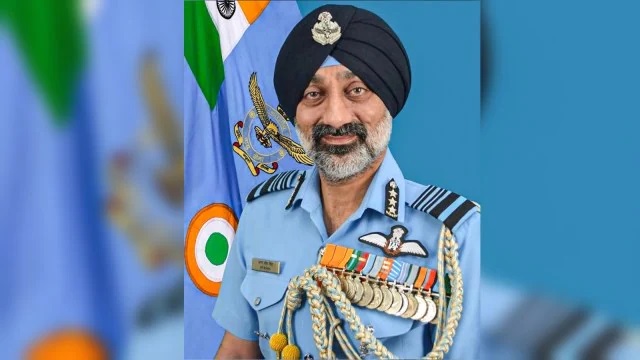Air Marshal Amar Preet Singh, 59, will succeed Air Chief Marshal VR Chaudhari, who will retire after three years in the top position, as the next chief of the Indian Air Force on September 30, according to a government announcement made on Saturday.
Singh has been closely associated with the Tejas light combat aircraft (LCA) program, a platform whose newer variants will serve as the foundation of the Indian Air Force’s combat capabilities in the upcoming decade and beyond.
He will assume the position of Air Chief Marshal in the world’s fourth largest air force at a time when the armed forces are actively modernizing their capabilities with locally produced military hardware, the armed forces are pursuing theaterisation, a long-awaited reform that will optimize the use of the military’s resources to fight future wars, and the country is embroiled in a protracted military standoff with China in the Ladakh sector.
Singh, the IAF’s vice chief, is a highly accomplished fighter pilot with over 5,000 hours of flying experience. In December 1984, he was commissioned into the air force.
In a statement issued by the defense ministry, it was stated that he has held a variety of positions, including command, staff, instructional, and foreign affairs, during a distinguished career that has lasted nearly four decades.
Singh’s professional experience includes commanding an operational fighter squadron, a frontline airbase, leading the MiG-29 upgrade project management team in Moscow, and serving as the project director (flight test) at the prestigious National Flight Test Centre in Bengaluru. In this capacity, he was involved in the flight testing of the Tejas LCA Mk-1.
He has also served as the Air Officer Commanding-in-Chief of Central Air Command, the Senior Air Staff Officer at Eastern Air Command, and the Air Defence Commander at South Western Air Command.
Singh is an experimental test pilot and a qualified flying instructor. He is a graduate of the National Defence Academy, Khadakwasla, Defence Services Staff College, Wellington, and National Defence College, New Delhi.
The IAF is concerned about the potential risks to its combat effectiveness as the LCA Mk-1A (an advanced variant of the Mk-1 aircraft) program is delayed, and Singh assumes the top job.
Hindustan Aeronautics Limited (HAL), the manufacturer, has been advised to complete the ₹48,000-crore contract for 83 fighters by 2028-29. Additionally, the defense ministry has the option to offer HAL a contract for 97 additional LCA Mk-1As, valued at ₹67,000 crore, by the end of the year.
The lingering delay in the supply of the F404 engines to HAL by US firm GE Aerospace is one of the primary reasons why many in the air force are skeptical about the LCA Mk-1A deadlines being met.
